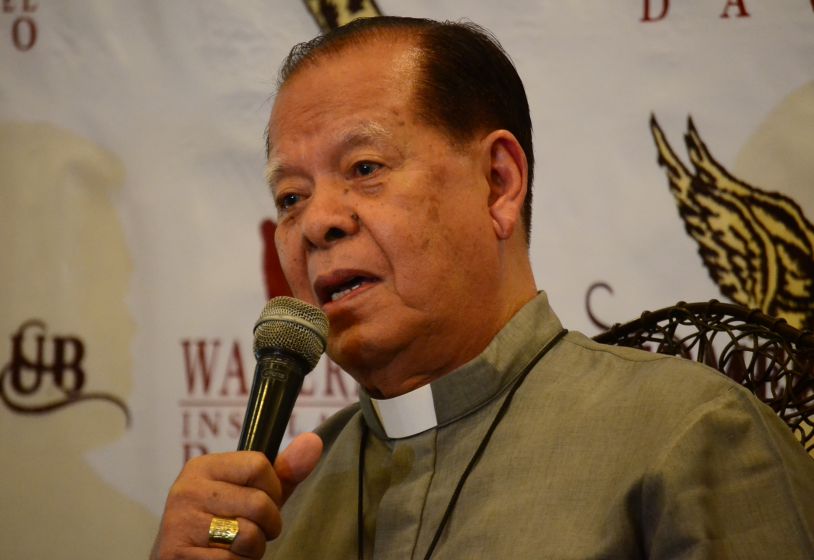
DAVAO CITY, Philippines – Archbishop Emeritus Fernando Capalla, who headed the Diocese of Davao for 16 years, passed away on January 6 at the age of 89.
This was announced in a press release by the news website of the Catholic Bishops’ Conference of the Philippines Saturday morning, after receiving the news from current Davao Archbishop Romulo Valles.
His death occurred four days after another Mindanao bishop, Ronald Lunas of the Diocese of Pagadian, passed away in a Davao hospital due to complications from heart bypass surgery.
Capalla was known as a peace advocate in his tenure as bishop in Iligan and Davao City.
Born on November 1, 1934, in Leon, Iloilo, Capalla was ordained a priest in the Diocese of Jaro, Iloilo in 1961. He was appointed auxiliary bishop of Davao in April 1975, at age 40, and in June that year was consecrated as Bishop.
He was assigned to the Prelature of Iligan City in 1977 and became its first bishop when Pope John Paull II elevated the prelature to a diocese in 1982.
Mindanews reports that Capalla was a human rights advocate during his tenure in Iligan, as he protected both human rights victims and workers of the Task Force Detainees of the Philippines.
Capalla also served as administrator of the Prelature of Marawi from 1987 to 1991, and in 1994 was appointed coadjutor archbishop of Davao.
He assumed the role of archbishop of Davao in November 1996, after the retirement of his predecessor, the late Archbishop Antonio Mabutas.
Capalla was the third Archbishop of Davao City and served until his retirement in February 2012 at age 77.
Capalla is recognized as one of the founders of the Bishops-Ulama Conference, an interreligious group that fostered dialogue and understanding between Christian and Moro leaders, particularly in Mindanao.
He was elected chair of CBCP for its two-year term from 2003 to 2005 and led its Episcopal Commission on Interreligious Dialogue and Episcopal Commission on Ecumenical Affairs.
Capalla’s leadership of the CBCP drew criticism in 2005 when they stopped short of joining the call for the resignation of then-President Gloria Macapagal-Arroyo for alleged cheating in the 2004 elections.
Instead, they called for “discernment” from the president and truth-seeking.
In November 2001, Capalla issued a pastoral letter condemning the rise of summary executions in Davao City on suspicions that they were into illegal drug peddling and abuse, a precursor of the war on drugs killings that rocked the nation under the Duterte presidency.
Capalla was given recognition for this promotion of interfaith dialogue, and received the San Lorenzo Ruiz Award for Peace and Unity in 1991, Ateneo de Manila University’s Public Service Award for Peace in 1998, and the Aurora Aragon Quezon Peace Award for Peace Advocacy and Peace Building in 2000. (davaotoday.com)
capalla, catholic, CBCP, davao city









